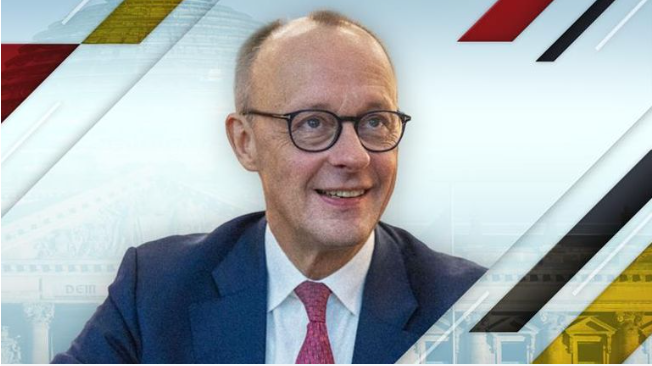Sidelined by Angela Merkel in the early 2000s, Friedrich Merz left politics for 20 years until she announced her retirement in 2018.

After a two-year lead in the polls, Friedrich Merz is largely expected to become German chancellor after the country’s election later this month.
Voters will head to the ballot box on 23 February after the collapse of Olaf Scholz’s centre-left coalition in November.
A victory for Merz would return German politics to the right and the traditional conservatism of the Christian Democrats.
It would be a remarkable comeback for a man pushed aside by Angela Merkel in the early 2000s and who failed to take charge of his party twice.
He left politics altogether for two decades, working in the private sector and training as a pilot.
Now 69, he seems finally poised to become leader of Europe’s largest economy.
‘Classic, West German conservative’
Friedrich Merz was born in Brilon, in west Germany, in 1955 to a well-known conservative, Catholic family.
His father was a local judge and a member of the Christian Democratic Union (CDU), which he decided to join himself as a teenager.
After a brief period of military service, he obtained a scholarship to study law from a political foundation linked to the CDU. There, he met his wife Charlotte, a fellow law student, who still works as a judge. They have three children.
He was a lawyer for much of the 1980s before setting his sights on politics – and being elected to the European Parliament in 1989.
Four years later, and still in his mid-thirties, he traded Brussels for the Bundestag and was elected MP for Hochsauerlandkreis in 1994.
Sidelined by Merkel
Merz quickly ascended the ranks of the CDU, becoming leader of the parliamentary party in 2000.
“Back then, he was the coming man in German politics – a classic West German, Catholic conservative,” Simon Green, professor of politics at the University of Salford, told Sky News.
But Angela Merkel, then the party’s overall leader, blocked his path, and after the CDU lost the 2002 election, replaced him as parliamentary leader as well.
“He embodied the more traditional, right wing of the party,” says Sebastien Maillard, associate fellow at Chatham House’s Europe Programme.
“Merkel was very centrist and by her standards, he was a real conservative – more what one would expect of a Christian Democrat.”
Their rivalry deepened further when the CDU returned to power in 2005 and Merkel became chancellor. Four years later, Merz stepped down as an MP and left politics for corporate law.









